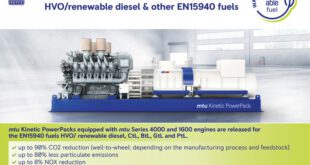New study shows food and fuel are top of mind for Americans
Sustainable America, a Stamford, Connecticut-based non-profit focused on the intertwined issues of food and fuel, announced today that its latest survey results show Americans are feeling pinched by high food and fuel costs but don’t fully understand the connections between the two. Sustainable America is leading the effort to raise awareness of the connection between food and fuel and the need to reduce the United States’ dependence on oil, while also working hard to help farmers grow and Americans consume food more sustainably, with less waste as a result.
Sustainable America works to raise awareness and inspire consumer behavior changes around issues like electric and natural gas vehicle use, consuming food that requires minimal fuel to produce, reducing food waste, and being more careful about how they use fuel in the first place.
The survey was conducted to gauge awareness of a variety of issues around food and fuel. Key results included the following:
Half of American voters support using corn-based ethanol in the nation’s transportation fuel supply; only 18 percent question whether that is wise.
- 84 percent of voters think energy independence should be a national goal.
- 7 in 10 say good fuel economy is ‘very important’ when thinking about purchasing their next vehicle.
- Half of Americans are willing to consider alternative fuel vehicles, but half do not know where to purchase alternative fuels.
- 6 in 10 Americans know someone personally who has struggled recently to afford food.
Misunderstood food expiration labels are responsible for nearly half of discarded food in American homes.
60 percent say reducing food waste at restaurants and grocery stores is the best way to increase food availability in the U.S.
“With this study, we hoped to confirm our suspicions that Americans are feeling strained by both food and fuel prices, but they don’t see the correlation between the two,” said Jeremy Kranowitz, Executive Director at the non-profit. “We found that citizens support new ways of addressing the issues but do not know how to take action.”
The Food Issue
The poll showed that 56 percent of Americans think growing food to expand the fuel supply is a good thing, while just 19 percent oppose. That large percentage in favor is a concerning number for Sustainable America. “We believe there needs to be less food in our fuel, and less fuel in our food,” said Kranowitz. “Global demand for calories is expected to grow by almost 50 percent over the next 40 years because of population growth and increases in per-capita consumption,” Kranowitz said. “Meeting accelerating food demands is a chief concern for us, and using food to produce fuel tightens supply and creates an unsustainable relationship between food usage and production. While we are absolutely in favor of alternative fuels, we seek more development of advanced biofuels, which are not produced with food.”
In an effort to help curb the growing food supply and waste issue, Sustainable America suggests Americans do some very simple, yet impactful things, such as:
Grow and eat more locally sourced food, including Community Supported Agriculture (CSA) initiatives
Purchase food that is in season at grocery stores and restaurants
Reduce food waste
In addition, two-thirds of all wasted food goes directly to landfills, and Sustainable America promotes wide-scale adoption of composting to return that otherwise wasted resource to the soil. They are working to turn Stamford’s summer concert series into zero-waste events, by turning all the food waste into compost for use in city gardens.
The Fuel Issue
The results of the survey show that 70 percent of Americans believe fuel economy is a key as they look to purchase or lease their next vehicle. In addition, consumers are worried about fuel prices rising. The encouraging news to Sustainable America is that respondents are open to alternative fuel and electric vehicles.
“The only downside to their interest in alternatives to gasoline- or diesel-powered vehicles,” said Kranowitz, “is that Americans struggle with the higher upfront cost of alternative-powered vehicles, and they are unsure of the batteries in electric vehicles.” Sustainable America believes this resistance can be overcome with more education and more familiarity with these currently available technologies.
Sustainable America will soon launch public awareness campaigns to promote and encourage the following:
Reduced fuel waste with more awareness of the benefits of less unnecessary idling of car and truck engines
The development and use of oil substitutes in transportation like electricity, natural gas, and advanced biofuels that do not depend on food
Shorter commutes or increased rideshare and public transportation use
The Connection
This interconnectedness of food and fuel has broad, negative consequences. Tight global supply and disruptions in either market will continue to drive up prices. “The worst possible outcome we face in the U.S. is that the tight balance of food and fuel could move beyond higher prices and weakened budgets to something with which society is currently unfamiliar: actual physical shortages,” added Kranowitz.
 Alternative Energy HQ solar power for homes, wind energy, and bio fuel issues
Alternative Energy HQ solar power for homes, wind energy, and bio fuel issues

 Hickenlooper Signs Bill Promoting Alternative Fuel Vehicles
Hickenlooper Signs Bill Promoting Alternative Fuel Vehicles







